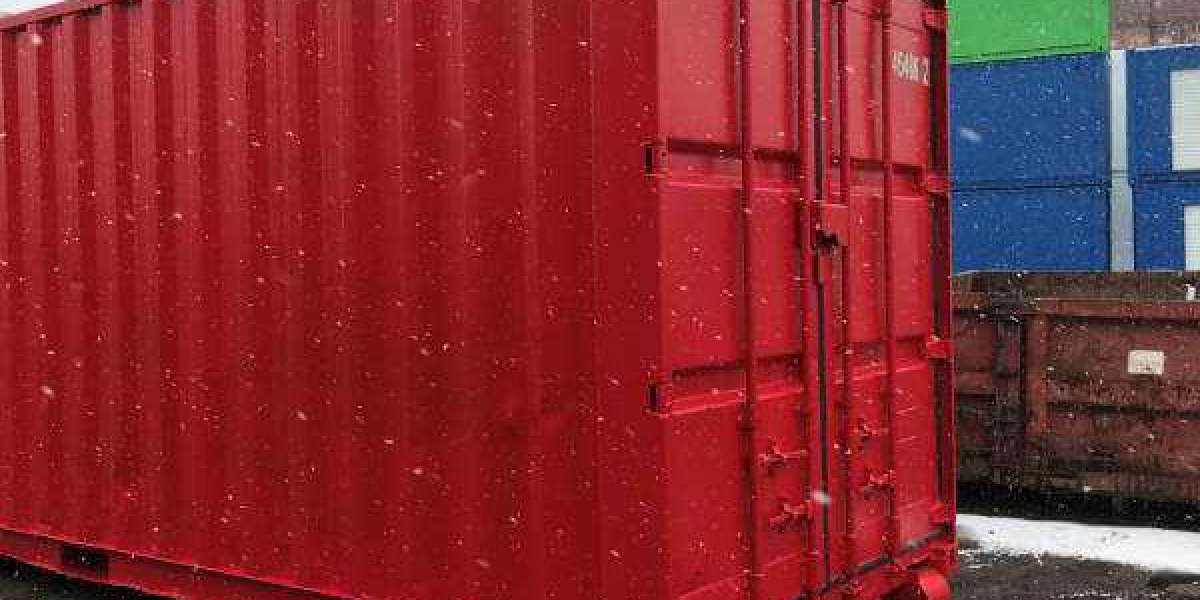Modern businesses are constantly searching for smarter, faster, and more affordable ways to operate. Rising real estate prices, the need for flexibility, and the demand for sustainable solutions have pushed companies to think beyond traditional office buildings. One strong trend that has emerged in recent years is the use of shipping container office spaces. What started as a creative experiment is now becoming a practical choice for startups, construction firms, and even established companies. These offices are not only cost-effective but also flexible and environmentally friendly. As business needs continue to evolve, more organizations are discovering that working inside a converted steel container can be just as comfortable and productive as working in a conventional office.
1. Cost-Effective Office Solutions
One of the main reasons businesses are making this switch is cost savings. Traditional office construction requires large investments in land, materials, labor, and time. In comparison, container offices are much cheaper to purchase and modify. Companies can save a significant amount of money on both upfront and long-term costs.
Renting office space in prime locations is often expensive, especially for small businesses and startups. Container offices offer a way to set up a professional workspace without committing to high rent. Maintenance costs are also lower because these structures are built from strong steel and require fewer repairs. This financial advantage allows businesses to invest more in growth, staffing, and innovation rather than rent and construction.
2. Flexibility and Mobility
Another major benefit is flexibility. Unlike permanent buildings, container offices can be moved from one place to another with ease. This is especially useful for construction companies, event organizers, and businesses operating in remote or temporary sites. If the business location changes, the office can move too.
The modular nature of a shipping container allows companies to expand or reduce office space as needed. Additional units can be added when the team grows, and removed when space is no longer required. This adaptability gives businesses greater control over their workspace and helps them respond quickly to changing demands without heavy investment.
3. Fast Setup and Time Efficiency
Time is a valuable asset in business. Traditional construction projects often take months, or even years, to complete. In contrast, container offices can be set up in a matter of weeks. Since the basic structure already exists, the only work needed is customization, insulation, wiring, plumbing, and interior design.
This quick setup allows businesses to start operations sooner. For startups, this means they can move from planning to action without long delays. For expanding companies, it means they can create new office space rapidly. Faster setup leads to faster productivity, which is a major advantage in competitive markets.
4. Sustainability and Environmental Benefits
Sustainability is now a major focus for many organizations. Reusing old steel containers helps reduce waste and gives new life to materials that might otherwise sit unused. This recycling process lowers the demand for new construction materials, which in turn reduces the environmental impact of building activities.
Container offices can also be designed to be energy efficient. With proper insulation, natural lighting, and eco-friendly materials, they can consume less energy than traditional buildings. Many businesses appreciate the opportunity to support green practices while also enjoying practical benefits. This balance between efficiency and responsibility is a strong reason behind the growing popularity of container offices.
5. Modern Design and Employee Comfort
In the past, containers were seen as rough, industrial structures. Today, that image has completely changed. With smart design and creative architecture, container offices can look modern, stylish, and welcoming. They can include large windows, air conditioning, comfortable furniture, and bright interiors.
Employee comfort and well-being are important for productivity. A well-designed workspace boosts morale and encourages better performance. Container offices can be customized in many ways to match a company’s brand and work culture. From open-plan layouts to private meeting rooms, they can offer the same comfort and functionality as traditional offices.
Conclusion
The growing shift toward container offices shows how businesses are rethinking the way they use space. With lower costs, high flexibility, quick setup, sustainable benefits, and modern design options, these offices provide a smart alternative to conventional buildings. As companies continue to look for practical and forward-thinking solutions, the appeal of shipping container workspaces keeps rising. In the years ahead, this trend is likely to become even more common as organizations focus on adaptability, efficiency, and responsible growth. By choosing container offices, businesses are not just saving money—they are also embracing a smarter way to work.














